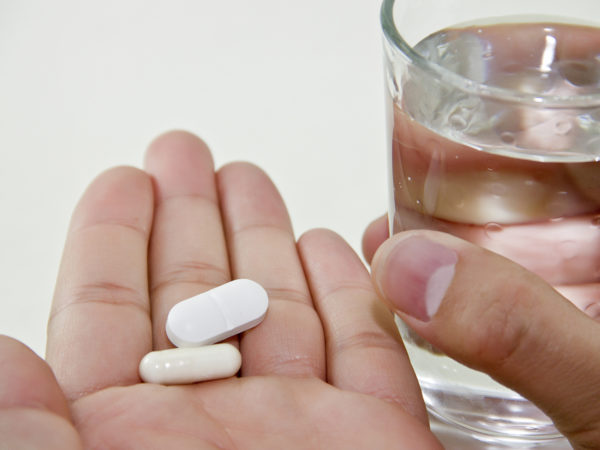Probiotics: Antibiotic Antidote?
Would you recommend taking probiotics if you have to take antibiotics, and if so, how much and when?
Andrew Weil, M.D. | May 20, 2003

I definitely recommend taking probiotics when you’re on antibiotics. Many antibiotics wipe out “friendly” intestinal bacteria that help keep your digestive system functioning normally. In the intestines and colon, these microbes help complete the digestive process, and some actually produce vitamins. There’s even evidence that without normal “friendly” bacteria in the digestive tract, our immune system wouldn’t function properly, and we would be less resistant to harmful bugs. Immediate effects of the disruption of normal gut flora by antibiotics are often diarrhea, cramping, bloating or other unpleasant digestive symptoms.
Probiotics are products containing the helpful bacteria that normally inhabit the human digestive tract, usually Lactobacillus or Bifidobacterium, (sometimes they are collectively called “acidophilus.”) Most occur in cultured milk products, such as yogurt with active cultures or acidophilus milk. Because concentrations of desired bacteria in milk products may not be high enough to do you any good, I recommend the use of supplemental lactobacillus in liquid or capsule form. I particularly recommend the strain known as Lactobacillus GG because research shows that it survives passage through the strong acid of the stomach and actually makes it into the intestinal tract where it’s needed. (One brand of Lactobacillus GG is Culturelle, sold on the Internet or in health food stores.)
Start taking probiotics twice a day with meals as soon as you begin taking antibiotics and continue for a few days after you complete your course of antibiotics.
Incidentally, in addition to preventing diarrhea associated with antibiotic treatment, probiotics have proven to be an effective treatment for diarrhea in children, travelers’ diarrhea, lactose intolerance, and irritable bowel syndrome.
Andrew Weil, M.D.










